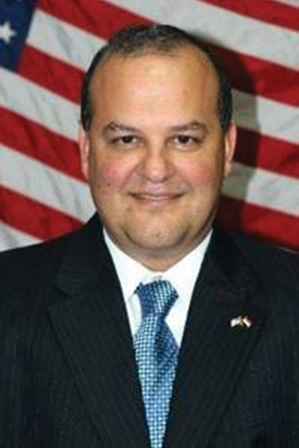Bidding Season Comes Around Again
State VP Voice
BY TOM YAZDGERDI

Well, it’s that time of year again: bidding season. Not many folks I know enjoy going through it, especially having to expound on their amazing, unique abilities and qualities (and getting others to do so, as well!).
It’s just a necessary, if somewhat unpleasant, part of Foreign Service life. As the American newspaperman and short story writer Damon Runyon said, “He who tooteth not his own horn, the same shall not be tooted.”
But this year there is some welcome news.
First, the Fair Share bidding policy has been scrapped. It just wasn’t doing what it was intended to do, as AFSA had pointed out frequently to the department over the last two years. Of all high-differential positions open in 2018 cycles, only five percent of paneled jobs were filled by Fair Share bidders.
Indeed, instead of encouraging Fair Share bidders to serve in high-differential assignments, the policy more often resulted in these bidders serving in domestic jobs. Sixty-seven percent of Fair Share bidders in 2018 assignment cycles were paneled to domestic or low-differential assignments (including the Priority Service Posts, DCM/Principal Officer, long-term training and details, and the regular cycle).
And this comes against the backdrop of the department having ramped up the number of minimum months of service in a high-differential post from 15 to 20 in 2007, and increasing the qualifying differential from 15 to 20 percent in 2017. So, this is one less big bid list headache to have to deal with.
Second, AFSA is pushing back against the department’s early drafts of the new Anti-Nepotism Review standard operating procedures, which appear to make it even more difficult for tandems to serve together. In a late-July call with key department personnel, we shared our substantial concerns on the SOPs. The response was that the department’s goal is to “get to yes.”
While we are currently awaiting the State Department’s rewrite of these SOPs, this is a welcome development. Serving as an office director years ago, I remember how difficult it was to panel a stellar officer—a tandem FSO whose partner was in another agency—into one of our posts. It finally happened, but only after months of wrangling, uncertainty and great pain.
AFSA believes the department must do a better job of helping families stay together while our diplomats do their jobs of defending and protecting America around the world.
There’s still more work to be done, but this change will make an opaque and ineffective process more transparent and responsive to the needs of our people. AFSA believes the department must do a better job of helping families stay together while our diplomats do their jobs of defending and protecting America around the world.
Third, after advocating alongside the affinity group Foreign Service Families with Disabilities Alliance for more than two years, we can report that State is negotiating in earnest many critical changes to the Special Needs Educational Allowance.
In June, the department issued “Round One” of guidance in a new Foreign Affairs Manual section, 3 FAM 3280 – Special Needs Education Allowance, which our Labor Management team helped craft. We then submitted comments to the interagency Department of State Standardized Regulations on SNEA, which should be finalized by press time, along with the “Round Two” changes to the new 3 FAM section.
We remain hopeful that this new FAM section will open up career opportunities for our members with special needs kids and believe these changes will yield real relief for those whose children need a little extra help to thrive.
In advocating for a benefit that every other major industrialized country offers its workers, AFSA also joined with other federal employee groups in successfully urging the House to adopt an amendment to the National Defense Authorization Act. This will provide federal employees with 12 weeks of paid family leave for the birth, adoption or foster placement of a child; to recover from a serious health condition; or to provide care to a family member suffering from a serious health condition.
The Senate version of the NDAA does not contain a parallel provision, so a House-Senate conference committee will decide whether to include that in the final version to be sent to the president. That decision is expected later this fall, and AFSA will continue to press for this important issue.
Finally, a quick note: AFSA Labor Management has moved! Our new office is at HST 2805 in a newly renovated part of the building at the northwest corner (near the D St entrance, which is expected to reopen in November). Please come by and see us.

